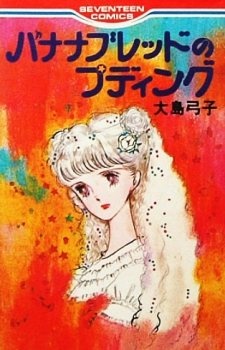Nov 3, 2018
Banana Bread no Pudding is one of those manga that you can say you read it and be proud of it. Because if you want to act smart, this one is perfect for you. By tackling themes such as philosophy or repressed sexuality, you can totally see it as a piece of artistic literature.
It tells the story of Ira, a strange young woman who keep on acting like a little girl. To avoid being alone after the marriage of her sister, she must marry someone. After confessing to Saeko, her best friend, that her ideal husband is a gay man wanting to hide from society,
...
she decides to make her believe that her brother is gay. So they get married, and here start the troubles.
The story is rather interesting. But it's especially an excuse for the author to make a psychological study of her own characters. They are all different and each have their own set of issues. First there is Ira, the protagonist, who is more than weird. She has the mind of a little girl and doesn't know how to live by herself. Either one is fascinated by her, or one finds her more than annoying. Because yes, Ira is a very interesting psychology case, but the way everyone around her is destroying their own life for her can be pretty frustrating.
The character of Saeko is particularly touching. You pity her throughout the story, seeing her struggling for her friend or sinking into depression after she learns that she can never be loved by the man she fell in love with. It's a pity that there was no real conclusion for her, she really deserved to know more about her feelings.
Now for Saeko's brother and Ira's husband, I have to be honest: I don't like him. He spends his time lying to Ira not to protect her like Saeko, but for his own interests. So I struggled to get with it when the author suddenly decided that he would have a sincere love for Ira.
To summarize; each of these characters deserve a session at the local psychiatrist.
Regarding the art style, the artist has a very interesting aesthetic. This is typical of the usual 70s shoujo, with the glittery eyes, slender legs and screentone effects. However, there is a rather mystical atmosphere that mixes both dream and reality. The scenes from Ira's imagination are particularly pretty. However, I am a little disappointed by the sets that are mostly composed of white backgrounds, which makes it difficult to locate the characters.
Now I don't want to spoil, but the end was quite disappointing. I was expecting a real conclusion, but instead, I had even more questions. I would have loved to know what will happen to the characters, but I guess the author kept it to herself. Well, who doesn't love some mystery?
BBNP was a real surprise. At first you think that you're reading a romance manga and then you discover that it's actually a psychology essay. It subtly addresses polemics who are still relevant, such as homophobia or mental illnesses, which was something very innovative and unusual for the 70s. Sadly, it's not perfect : Some characters or situations make sometimes the reading a little less enjoyable and you get lost easily between what's real or not. But I don't think BBNP should be considered as an ordinary manga. No, it has to be seen as a work of art : beautiful, yet complex and deeply intellectual.
Story : 7
Art : 8
Character : 8
Enjoyment : 7
Overall : 8
Reviewer’s Rating: 8
What did you think of this review?
Nice
 0
0
Love it
 0
0
Funny
 0
0
Confusing
 0
0
Well-written
 0
0
Creative
 0
0Show all

